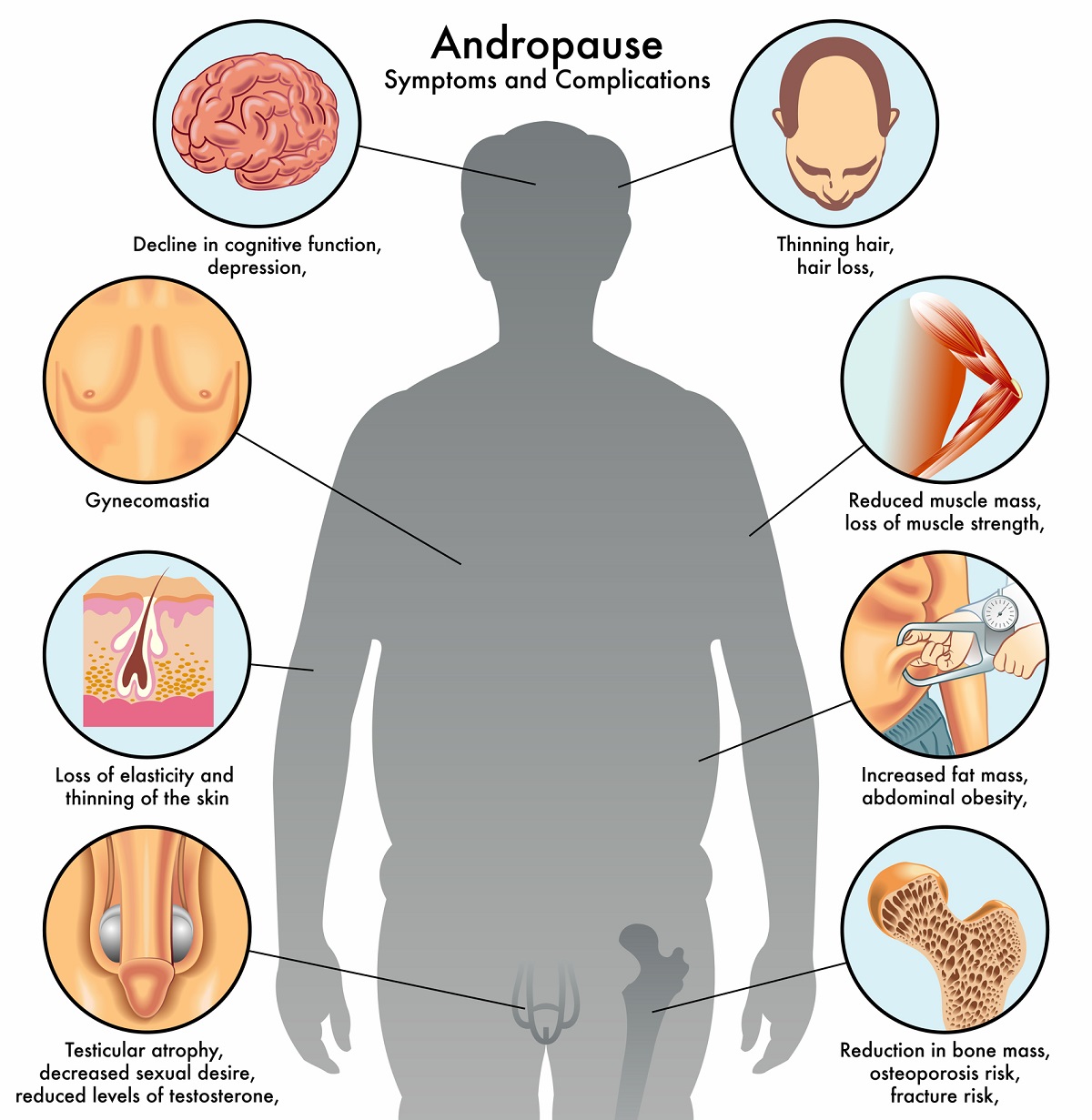Debunking the male menopause myth
The term “male menopause” is sometimes used to describe decreasing testosterone levels related to aging. So what’s the best way to refer to so-called male menopause? Many doctors use the term “andropause” to describe aging-related hormone changes in men. Other terms include testosterone deficiency syndrome, androgen deficiency of the aging male and late-onset male hypogonadism.
Understanding male hormones over time
Testosterone levels vary greatly among men. In general, older men tend to have lower testosterone levels than do younger men. Testosterone levels gradually decline throughout adulthood — about 1 percent a year after age 30 on average.
Recognizable signs and symptoms of low testosterone levels may include:
- Changes in sexual function. This might include reduced sexual desire, erectile dysfunction, fewer spontaneous erections — such as during sleep — and infertility. Your testes might become smaller as well.
- Changes in sleep patterns. Sometimes low testosterone causes sleep disturbances, such as insomnia, or increased sleepiness.
- Physical changes. Various physical changes are possible, including increased body fat, reduced muscle bulk and strength, and decreased bone density. Swollen or tender breasts (gynecomastia) and loss of body hair are possible. Rarely, you might experience hot flashes and have less energy.
- Emotional changes. Low testosterone might contribute to a decrease in motivation or self-confidence. You might feel sad or depressed, or have trouble concentrating or remembering things.
If you are experiencing signs and symptoms that might be the result of a low testosterone level, consult your doctor. He or she can evaluate possible causes for the way you feel and explain treatment options. Treating aging-related low testosterone with testosterone replacement therapy is controversial. For some men, testosterone therapy relieves bothersome signs and symptoms of testosterone deficiency. For others, the benefits aren’t clear and there are possible risks.
Among the risks, testosterone therapy contributes to sleep apnea, stimulates noncancerous growth of the prostate and stimulates growth of existing prostate cancer. Testosterone therapy may also increase the risk of heart attack and stroke and contributes to the formation of blood clots in the veins. If you wonder whether testosterone replacement might be right for you, work with your doctor to determine why your testosterone level is low and whether it is causing your symptoms. Weigh the pros and cons of treatment together with your doctor.


Comment here